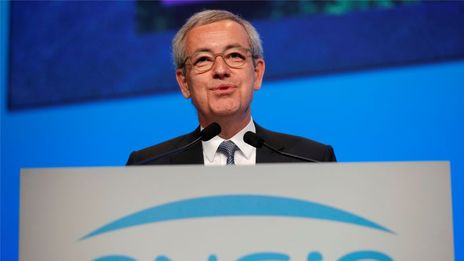The exchange rate leapt as high as 0.80 francs per euro within minutes after the 1.20 peg was removed, before falling back to around 1.02 - a rise of about 15 percent - setting off wider global currency tremors. [MKTS/GLOB]
Here are four impacts on consumers, business, savers and the world economy of the unexpected decision:
TOURISM - The cost of a holiday in Switzerland, already one of Europe's most expensive ski destinations, just went through the roof in the middle of the busy winter sport season.
The global business and political elite, who gather for the annual World Economic Forum in the Alpine resort of Davos next week, will find the cost of hotels and entertainment sharply higher in dollars, euros or yen.
They can afford it, but other visitors may cancel or curtail their trips, and foreign companies may reduce their presence. Even before the franc's surge, four Swiss cities - Zurich, Geneva, Basel and Bern - were among the 10 most expensive places in the world for expatriates to live and work, according to the 2014 Employment Conditions Abroad survey.
INDUSTRY - Trademark Swiss exports that target the upper end of the world's consumer markets, from watches to chocolate and cheese, just became significantly more expensive, and imports from the surrounding European Union substantially cheaper.
Swiss bank UBS estimated the direct cost to exporters will be equivalent to 0.7 percent of gross domestic product.
But the Swiss economy faces the shock from a position of strength. Unemployment was 3.4 percent in December - among Europe's lowest - and the government last month forecast economic growth of 2.1 percent this year and 2.4 percent in 2016, after an estimated 1.8 percent in 2014.
However, the blue-chip SMI share index fell by more than 8.6 percent, wiping $100 billion off the value of Swiss stocks, with watch manufacturer Swatch, luxury goods firm Richemont and cement-maker Holcim down 10 to 16 percent in the carnage.
Swatch Chief Executive Nick Hayek called the decision "a tsunami" for the Swiss economy. Businesses with most of their costs at home will be most exposed.
ECONOMIC UNCERTAINTY - The Swiss currency ambush compounds global economic uncertainty at a time when oil prices have more than halved to below $50 per barrel, copper prices have fallen to a five-year low and Russia's rouble has lost some 55 percent of its value against the dollar since June due to the energy price shock and Western sanctions over Ukraine.
With major central banks all trying to steady markets by providing long-range guidance on monetary policy, it also raised questions about the SNB's credibility.
SNB Chairman Thomas Jordan said last week the currency cap was "absolutely central" to maintaining the right monetary conditions. His deputy said on Monday the minimum exchange rate "must remain the cornerstone of our monetary policy".
SAFE HAVEN - Switzerland's cherished reputation as a safe haven for foreign wealth may also take a hit from the currency turmoil. Holders of accounts in Swiss francs have made a massive paper gain that some may be tempted to cash in fast.
But coming on top of Swiss moves reluctantly to cooperate more with tax authorities in the United States, the European Union and other jurisdictions, Thursday's decision may have consequences for rich Russians and others who sought to park their money in seemingly stable Alpine vaults.
(Writing by Paul Taylor; Editing by Pravin Char)



























